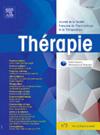罕见病的基因治疗临床研究是否反映了国家的竞争力:以法国为例
IF 1.8
4区 医学
Q3 PHARMACOLOGY & PHARMACY
引用次数: 0
摘要
罕见病是影响少数人的慢性、严重和遗传性疾病,其治疗管理是一项真正的挑战。它们给患者、护理人员和社会都带来了沉重的负担。与现有的对症治疗相比,基因疗法是一种前景广阔的新方法,旨在通过替换有缺陷的基因、取消或恢复基因衍生功能来治疗这些疾病。法国被认为是研究和开发罕见病药物的领先国家之一,但法国公共和私人利益相关者在全球和欧洲罕见病基因疗法研究和开发中的地位仍不明确。为了回答这个问题,我们利用 OrphanDev 开发的法国基因治疗数据库(GENOTRIAL FR)阐明了法国在这一领域的参与情况和竞争力。结果显示,法国积极参与基因治疗临床试验,拥有密集的国际合作网络和扎实的专业知识。然而,法国的医疗基础设施主要参与由多个外国赞助的基因治疗候选项目的临床研究。在较小程度上,法国的公共和私营实体也在开发自己的基因疗法候选药物,用于治疗各种罕见疾病,其中一些药物已进入临床后期阶段。总之,如果法国要保持其作为欧洲和世界领导者的地位,并通过开发革命性的有效新疗法,为减轻罕见病的经济和社会负担做出更大贡献,就必须克服一系列技术和财政挑战。本文章由计算机程序翻译,如有差异,请以英文原文为准。
Does gene therapies clinical research in rare diseases reflects the competitivity of the country: Example of France
Rare diseases are chronic, serious and generally genetic conditions affecting a small number of people, and their therapeutic management is a real challenge. They represent a considerable burden for patients, caregivers and society alike. Compared with existing symptomatic treatments, gene therapies represent a promising new approach aimed at treating these diseases by replacing a defective gene, or by abolishing or reviving a gene-derived function. France is considered one of the leading countries in the research and development of drugs for rare diseases, yet the position of French public and private stakeholders in the research and development of gene therapies for rare diseases at global and European level remains unclear. To answer this question, we used the GENOTRIAL FR database developed by OrphanDev to clarify France's involvement and competitiveness in this field. The results show that France is actively involved in gene therapy clinical trials, with a dense international collaboration network and solid expertise. However, the French medical infrastructure is mainly involved in clinical research on gene therapy candidates sponsored by several foreign countries. To a lesser extent, French public and private entities are also developing their own gene therapy candidates for various rare diseases, some of which have already reached advanced clinical phases. In conclusion, a number of technical and financial challenges need to be overcome if France is to maintain its position as a European and world leader and increase its contribution to reducing the economic and social burden of rare diseases by developing revolutionary and effective new therapies.
求助全文
通过发布文献求助,成功后即可免费获取论文全文。
去求助
来源期刊

Therapie
医学-药学
CiteScore
3.50
自引率
7.70%
发文量
132
审稿时长
57 days
期刊介绍:
Thérapie is a peer-reviewed journal devoted to Clinical Pharmacology, Therapeutics, Pharmacokinetics, Pharmacovigilance, Addictovigilance, Social Pharmacology, Pharmacoepidemiology, Pharmacoeconomics and Evidence-Based-Medicine. Thérapie publishes in French or in English original articles, general reviews, letters to the editor reporting original findings, correspondence relating to articles or letters published in the Journal, short articles, editorials on up-to-date topics, Pharmacovigilance or Addictovigilance reports that follow the French "guidelines" concerning good practice in pharmacovigilance publications. The journal also publishes thematic issues on topical subject.
The journal is indexed in the main international data bases and notably in: Biosis Previews/Biological Abstracts, Embase/Excerpta Medica, Medline/Index Medicus, Science Citation Index.
 求助内容:
求助内容: 应助结果提醒方式:
应助结果提醒方式:


